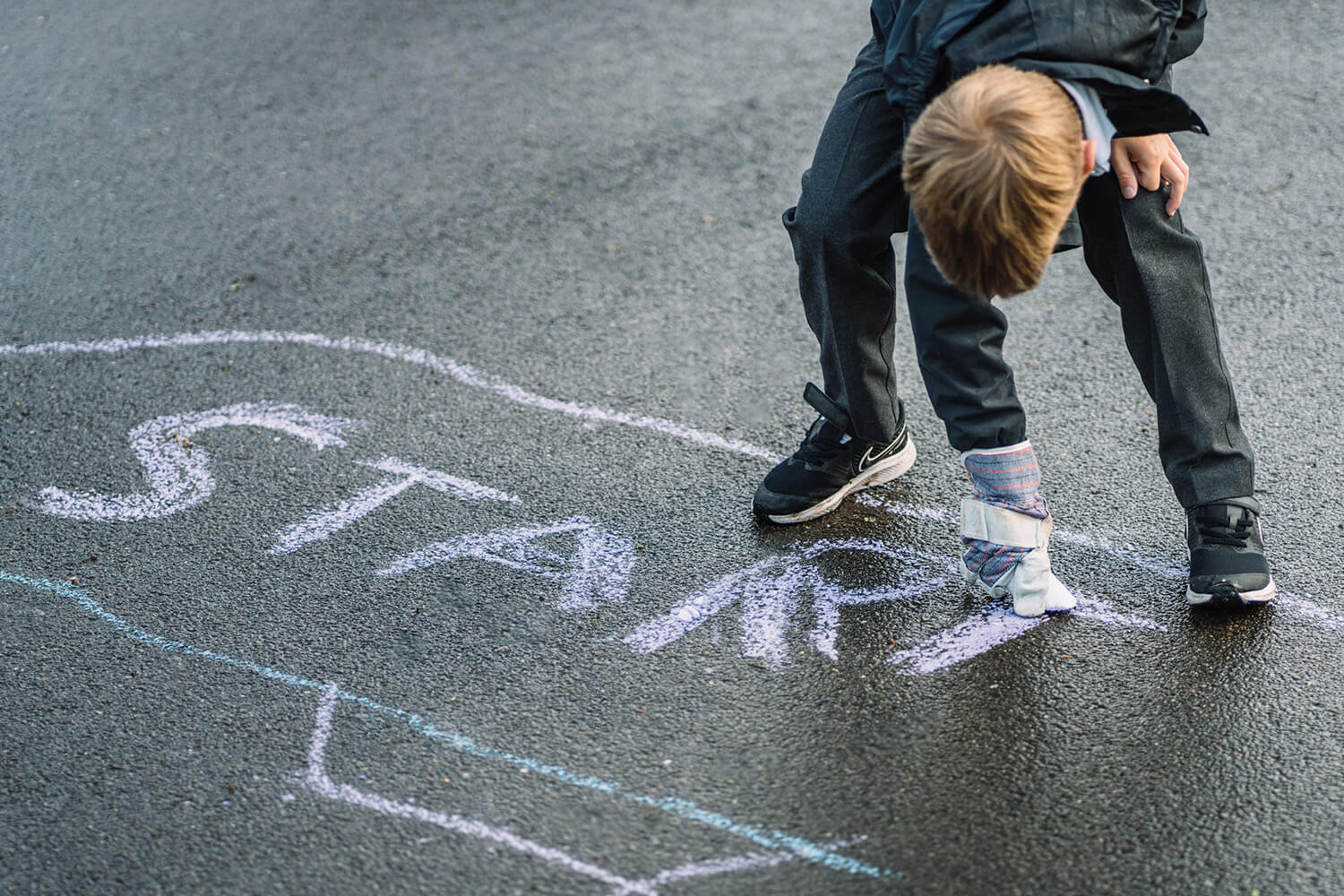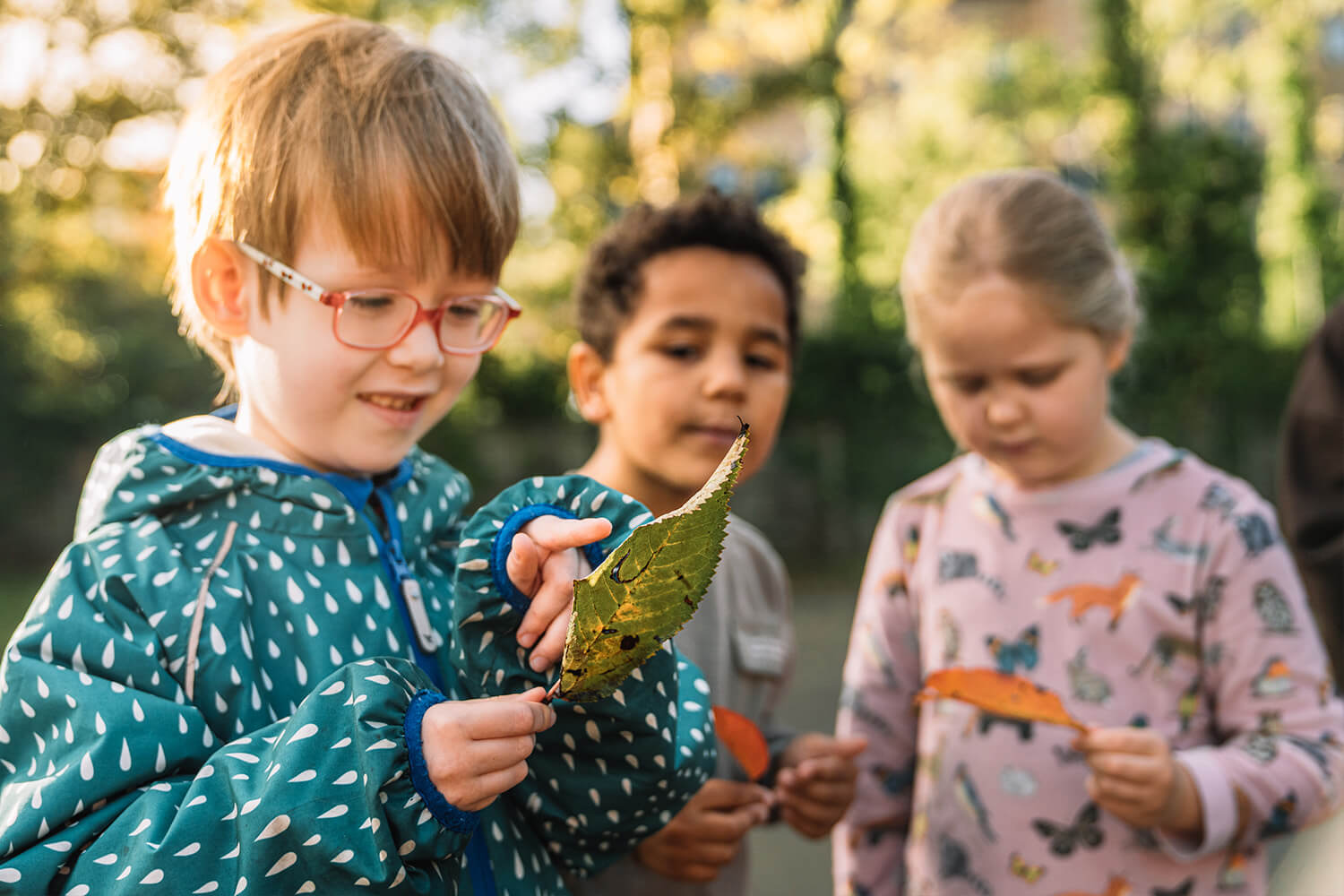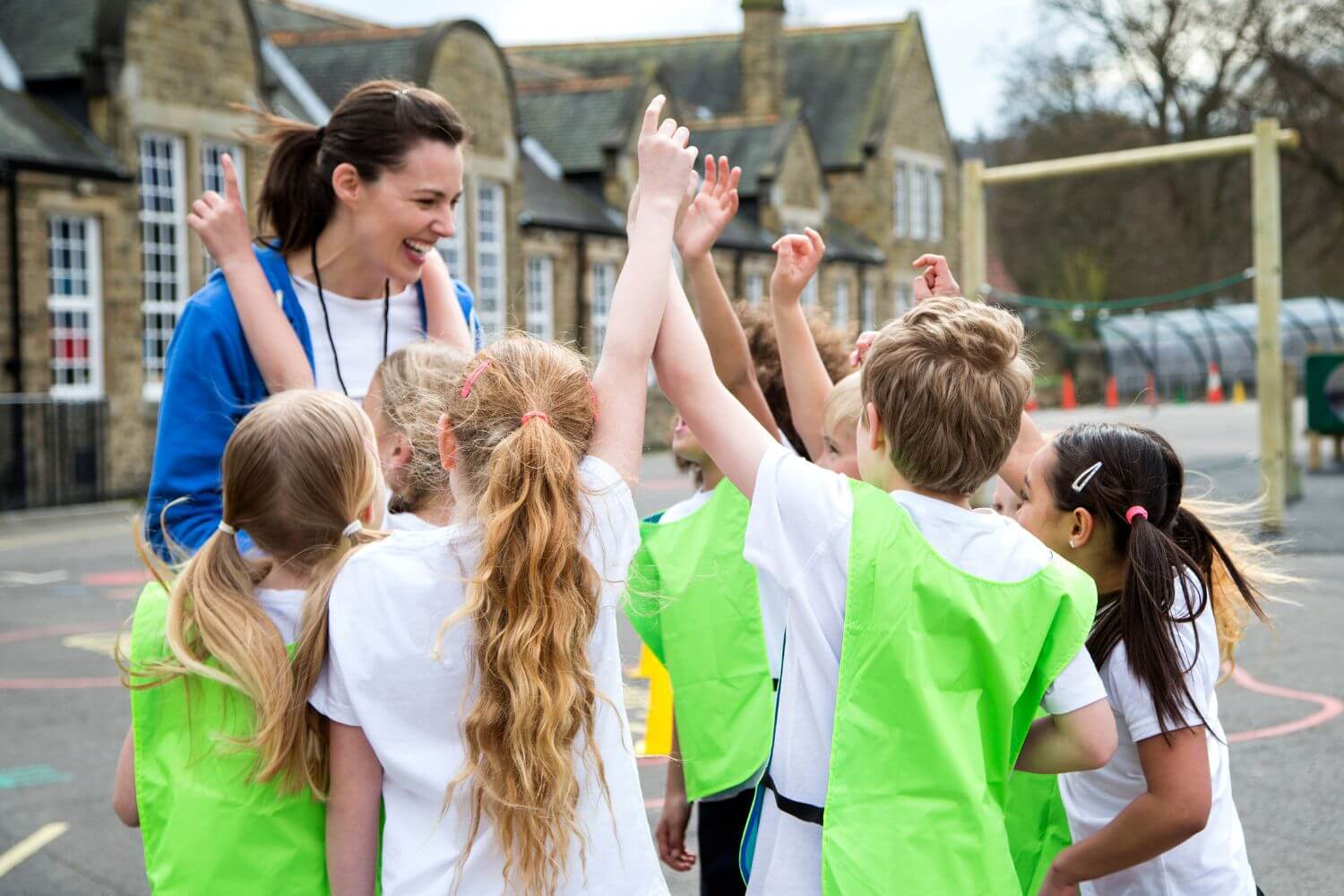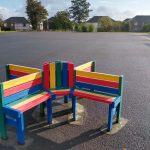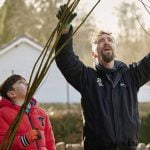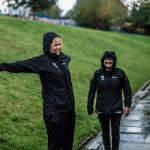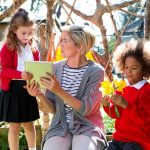Why you should try outdoor learning in 2024 | Ask Educators
With the help of educators and experts from around the world, we’re here to tell you why you should try outdoor learning in 2024.
The start of a new year is a time when many of us are thinking about personal growth and self-improvement. It offers the perfect opportunity to try something new — perhaps starting a new hobby or developing healthier habits. But what if you could improve your health and wellbeing, develop your professional skills, and boost your pupils’ development by doing one simple thing?
Outdoor learning offers key benefits across so many areas — and you’re already qualified to do it! However, we know that teaching outdoors can seem daunting at first. That’s why — with the help of educators and experts from around the world — we’re writing a series of blog posts encouraging newcomers to outdoor learning to give it a try this year.
We asked educators across different educational backgrounds to tell us why they choose to take learning outdoors — and why you should, too! We were incredibly grateful to receive so many thoughtful responses, and we’re delighted to share some of them with you in this post. Next time, we’ll explore some top tips for outdoor learning in any setting, before focussing on key advice for teaching outdoors across early years, primary, and secondary. We hope that these posts will leave you feeling prepared to venture into the outdoor classroom for the first time — and we’re here to support you every step of the way.
To kick things off, let’s take a look at the many benefits of taking lessons outdoors, both for educators and their pupils.
It’s great for health and wellbeing
Connecting with nature helps me to slow down in what is usually a fast-paced school environment. Taking the time to ‘notice nature’ is huge for my wellbeing and allows me to regulate and recalibrate in terms of stress levels.
— Niall, primary school educator from Bradford
“My personal enjoyment and wellbeing impacts pupil wellbeing and learning. Outdoors, I have more freedom to adapt lessons to my pupils, and this leads to better engagement and behaviour.”
— Marnie, secondary school educator from Driffield
I find it easier to deal with any stressors that arise because being outdoors is far more calming than being inside. It’s so easy to make an outdoor session fun, interesting, and engaging.
— Aileen, primary school educator from Helensburgh
“After taking the younger children outdoors, I find their sleep better and their appetite improved. They seem calmer, too.”
— Rita, early years educator from Downham Market
Using natural environments supports workload and mental health issues within teaching. I can enjoy the natural world, push back physical and psychological boundaries, and be creative with my teaching.
— Pete, primary school educator from Birmingham
It helps learning stick
Pupils are more engaged with their learning in the outdoor classroom. When asked, ‘What did you do at school today?’, children answer with a lot more than ‘nothing’ after being outside. These memories stay with them, becoming lifelong learning which translates into environmental awareness at some level as adults.
— Suzi, primary school educator from Portsmouth
“The experience is more stimulating therefore more memorable. The learning sticks!”
— Emma, primary school educator from Bristol
Teaching outdoors has the power to change the way students understand a subject and accelerates the learning process. However, even just being outdoors and having a positive experience can be immensely powerful.
— Stephen, multi-phase educator from Abergavenny
“Being outdoors gives learning a real-life context which is far more memorable than pictures. Compared to staying in the classroom, far more questions arise from learning outdoors. It’s exciting for the pupils and good for their wellbeing, especially on a beautiful sunny day.”
— Anonymous, primary school educator
Pupils enjoy it, so they’re less afraid to ask questions away from a classroom environment. Being outdoors makes it ‘real world’.
— Lucy, secondary school educator from Bristol
It’s more inclusive
Teaching outdoors offers an opportunity to see children flourish in a different environment and helps me to understand the children’s individual learning styles.
— Penn, early years educator from Rochdale
“Children do not all learn in the same way, so using the outdoors can reach many children who do not respond well to ‘bums on seats’ teaching. Different children get the opportunity to shine, and pupils are more responsive to each other.”
— Jenny, primary school educator from Glasgow
With space to explore outside of a cramped classroom, students are calmer. They don’t see outdoor lessons as lessons, so they seem to learn more and demonstrate their abilities better. They are less inhibited by their own beliefs that they ‘can’t read’ or ‘can’t do maths’ — they just learn!
— Jane, educator at a special school for children aged 4-19 in Leicester
“The children are much calmer and more engaged outdoors. It allows for more inclusion of children with additional needs.”
— Kierna, early years educator from Dungannon
Children who struggle in class, either academically or behaviourally, often see outdoor learning as the ‘easy’ option, yet learn more effectively outside without realising. The first-hand nature of outdoor learning makes it meaningful to them, so they naturally want to play, explore, and find out about their own environment.
— E. Thomas, primary school educator from Woburn Sands
It has a positive impact on everything else
Fresh air clears the mind and increases pupils’ focus on learning. In turn, this makes teaching easier.
— Sarah, primary school educator from London
“I value the ability to teach life skills such as resilience and independence in addition to curriculum subjects. These skills and attributes can often be nurtured more effectively with outdoor learning and this gives me a greater sense of satisfaction in my job. Children encounter controlled risk that allows them to learn coping strategies and independence. Sometimes, they are facing and overcoming their own fears.”
— Ann, primary school educator from Ward
I’m able to build different relationships with the students through the different venue, challenges, and activities. In turn, students see staff in a different light — we’re not just formal teachers of curricular subjects outdoors.
— Anonymous, secondary school educator
“The outdoors provides so many opportunities to make learning exciting, memorable, and inclusive. As a headteacher, I see the benefit for everyone’s wellbeing, development, and all areas of the curriculum.”
— Lee, primary school educator from Hereford
People think it is difficult to evidence outdoor learning, but I believe you will be able to see the impact in their books when back in the classroom.
— Niall, primary school educator from Bradford
How to get started
By now, you’re probably feeling eager to get out into the outdoor classroom! So, how do you get started?
Next, we asked educators to share their top tips for newcomers to outdoor learning. Have a read to discover everything you need to know about getting started with outdoor learning, no matter your educational background!
Be sure to visit our school stage hubs for early years, primary, and secondary where you will find everything you need to take learning outdoors in your setting, including lesson ideas, training, and guidance. Finally, don’t forget to sign up to our newsletter to receive the latest outdoor learning news and opportunities direct to your inbox!
For even more outdoor learning advice, explore the rest of the posts in this series:
Our top tips for newcomers to outdoor learning
3 things you need to know about outdoor learning in the early years
5 barriers to outdoor learning at primary school and how to overcome them
How to teach any subject outdoors at secondary school


